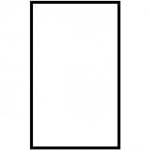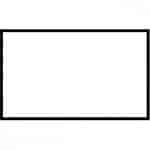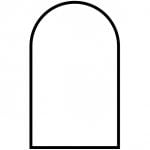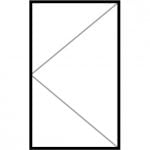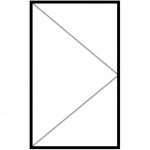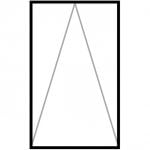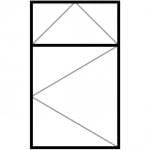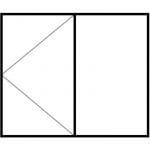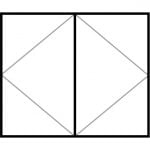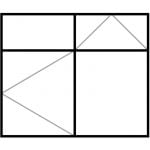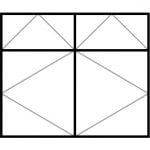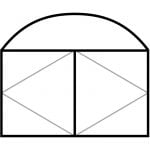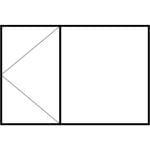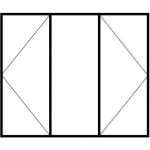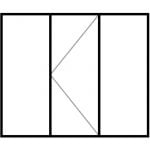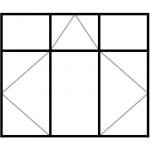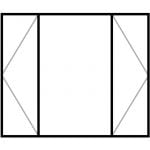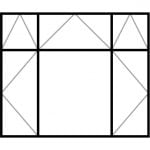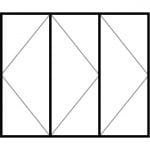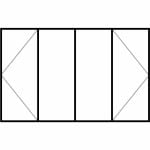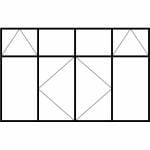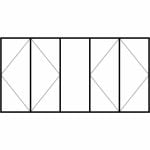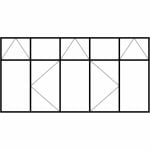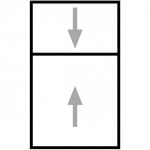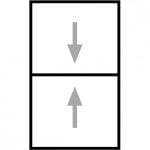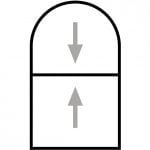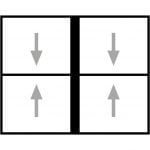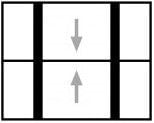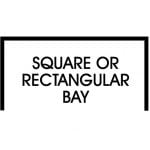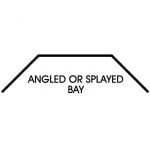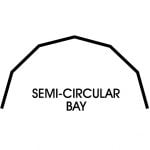Across the Clearview range, you’ll find secondary glazing for nearly every window under the sun. Scroll through the illustrations below and find the window most closely matching your primary window. Click on the illustration to view the recommended secondary glazing type and get a FastQuote. See What’s the right secondary glazing for your window? for help making the best choice.
Find your Window Type
For a non-opening decorative window, or a window installed purely to provide light the basic lift out is the perfect and most cost effective option.
For a non-opening decorative window, or a window installed purely to provide light the basic lift out is the perfect and most cost effective option.
For a non-opening decorative window, or a window installed purely to provide light the basic lift out is the perfect and most cost effective option.
For a non-opening decorative window, or a window installed purely to provide light the basic lift out is the perfect and most cost effective option.
For a single pane window that opens from the left, right or top we would recommend our single casement hinged units. They can be supplied with the hinges positioned left or right, or top-hung to suit your existing windows.
For a single pane window that opens from the left, right or top we would recommend our single casement hinged units. They can be supplied with the hinges positioned left or right, or top-hung to suit your existing windows.
For a single pane window that opens from the left, right or top we would recommend our single casement hinged units. They can be supplied with the hinges positioned left or right, or top-hung to suit your existing windows.
Single Casement Vertical Slider
For a single window split top and bottom with both sections opening or a fixed section and opening section, either split 50:50 or a smaller section to the top. that opens from the left, right or top we would recommend our single casement hinged units. They can be supplied with the hinges positioned left or right, or top-hung to suit your existing windows. Alternatively a Balanced Vertical Slider, equally split or offset.
2 Pane Casement Horizontal Sliders
For a two pane window that opens from the left, right or top we would recommend our two pane casement horizontal sliders which is the most commonly used type of secondary glazing. Panels slide within the frame allowing easy access to the existing outer windows.
2 Pane Casement Horizontal Sliders
For a two pane window that opens from the left, right or top we would recommend our two pane casement horizontal sliders which is the most commonly used type of secondary glazing. Panels slide within the frame allowing easy access to the existing outer windows.
2 Pane Casement Horizontal Sliders
For a two pane window that opens from the left, right or top we would recommend our two pane casement horizontal sliders which is the most commonly used type of secondary glazing. Panels slide within the frame allowing easy access to the existing outer windows.
2 Pane Casement Horizontal Sliders
For a two pane window that opens from the left, right or top we would recommend our two pane casement horizontal sliders which is the most commonly used type of secondary glazing. Panels slide within the frame allowing easy access to the existing outer windows.
2 Pane Casement Horizontal Sliders
For a two pane window that opens from the left, right or top we would recommend our two pane casement horizontal sliders which is the most commonly used type of secondary glazing. Panels slide within the frame allowing easy access to the existing outer windows.
2 Pane Casement Horizontal Sliders
For a two pane window off set with one large panel and one smaller panel that opens from the left, right or top we would recommend our two pane casement horizontal sliders which is the most commonly used type of secondary glazing. Panels slide within the frame allowing easy access to the existing outer windows.
3 Pane Casement Horizontal Sliders
For a three pane window that opens from the left, right or top we would recommend our three pane casement horizontal sliders which is the most commonly used type of secondary glazing. Panels slide within the frame allowing easy access to the existing outer windows.
3 Pane Casement Horizontal Sliders
For a three pane window that opens from the left, right or top we would recommend our three pane casement horizontal sliders which is the most commonly used type of secondary glazing. Panels slide within the frame allowing easy access to the existing outer windows.
3 Pane Casement Horizontal Sliders
For a three pane window that opens from the left, right or top we would recommend our three pane casement horizontal sliders which is the most commonly used type of secondary glazing. Panels slide within the frame allowing easy access to the existing outer windows.
3 Pane Casement Horizontal Sliders
For a three pane window with a larger centre section and smaller outer sections that opens from the left, right or top we would recommend our three pane casement horizontal sliders which is the most commonly used type of secondary glazing. Panels slide within the frame allowing easy access to the existing outer windows.
3 Pane Casement Horizontal Sliders
For a three pane window with a larger centre section and smaller outer sections that opens from the left, right or top we would recommend our three pane casement horizontal sliders which is the most commonly used type of secondary glazing. Panels slide within the frame allowing easy access to the existing outer windows.
3 Pane Casement Horizontal Sliders
For a three pane window that opens from the left, right or top we would recommend our three pane casement horizontal sliders which is the most commonly used type of secondary glazing. Panels slide within the frame allowing easy access to the existing outer windows.
4 Pane Casement Horizontal Sliders
For a four pane window that opens from the left, right or top we would recommend our four pane casement horizontal sliders which is the most commonly used type of secondary glazing. Panels slide within the frame allowing easy access to the existing outer windows.
4 Pane Casement Horizontal Sliders
For a four pane window that opens from the left, right or top we would recommend our four pane casement horizontal sliders which is the most commonly used type of secondary glazing. Panels slide within the frame allowing easy access to the existing outer windows.
5 Pane Casement Horizontal Sliders
For a five pane window that opens from the left, right or top we would recommend our four pane casement horizontal sliders which is the most commonly used type of secondary glazing. Panels slide within the frame allowing easy access to the existing outer windows.
5 Pane Casement Horizontal Sliders
For a five pane window that opens from the left, right or top we would recommend our four pane casement horizontal sliders which is the most commonly used type of secondary glazing. Panels slide within the frame allowing easy access to the existing outer windows.
For a traditional sash window we recommend our vertical slider. Panels slide up and down in the same way as vertical sliding sash windows and provide easy access to the existing window.
For a traditional sash window we recommend our vertical slider. Panels slide up and down in the same way as vertical sliding sash windows and provide easy access to the existing window.
For a traditional sash window we recommend our vertical slider. Panels slide up and down in the same way as vertical sliding sash windows and provide easy access to the existing window.
Twin Sash Windows Vertical Slider
For a traditional twin sash window we recommend our vertical slider. Panels slide up and down in the same way as vertical sliding sash windows and provide easy access to the existing window. Alternatively a single 2 panel horizontal slider can be equally effective.
Triple (venetian) Sash Windows
Lift-Out x Vertical Slider x Lift-Out
For a traditional triple or venetian sash window often with 2x narrower fixed windows either side of a wider opening window. This can be treated in several ways – 3 x vertical sliders side-by-side or 2 x lift-outs either side of a vertical slider or, 1 x 3-Panel Horizontal slider with panels sized to match the primary (reduced access)
Given the variety of options for bay windows we would suggest Viewing our
Given the variety of options for bay windows we would suggest Viewing our
Given the variety of options for bay windows we would suggest Viewing our


